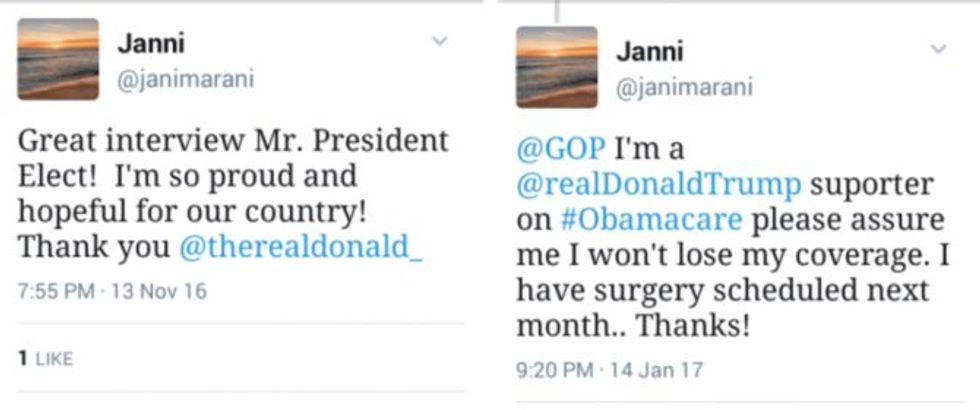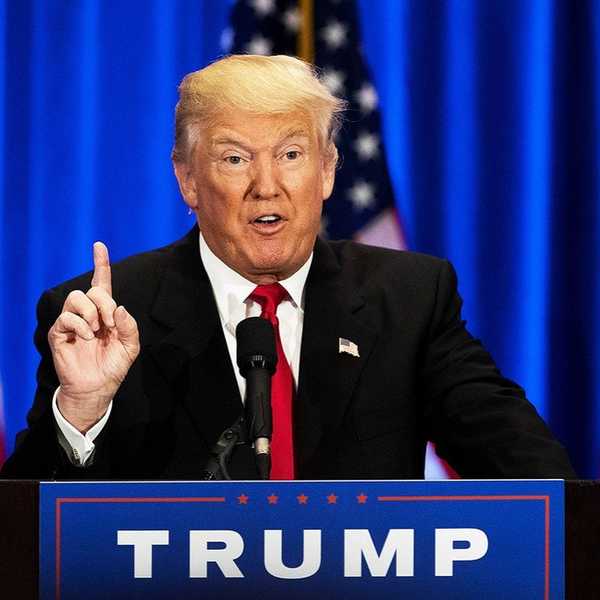“I don’t feel sorry for them,” I say, scrolling absentmindedly through my Facebook feed. Yet another Trump supporter is suddenly indignant because they have realized that the repeal of Obamacare means losing their health insurance coverage. “Sorry, I just can’t.” My friends and I are sitting in a darkened corner of a local Japanese restaurant, waiting for food to arrive after a long day of work and school.
“Being informed about healthcare is a privilege,” one of my friends reminds me, and I am taken aback. “If you’re working three jobs you just might not realize that Obamacare and the ACA are the same thing.” He pauses as our food arrives, waiting for the waitress to disappear back into the kitchen. “Not everyone grew up with the same liberal education that we did.”
I splutter for a moment, getting tangled up in my own arguments. He’s right, of course, is what it comes down to. Access to healthcare is a privilege, and so, in many ways, is being truly informed. In general, I consider myself to be a very empathetic person. I work hard to see things from all sides. So why do I still not feel bad for people in this position? Why am I so opposed to taking their side?
I takes me several days to figure it out, picking my own brain for answers, and here’s what it comes down to— it isn’t really about the healthcare at all.
I don’t want Trump supporters ensured by the ACA to lose their coverage. I don’t want anyone to lose their health insurance coverage at all.
Firstly, let me preface this explanation by saying that I am referring to true, self-proclaimed Trump supporters. I’m not referring to people who voted for Trump as a “lesser of two evils,” or who cast a truly uninformed vote along party lines and hoped for the best. No, I’m referring to people who listened to what Trump had to say, looked at his policies, and said, “Yes, this is how we make America great again.”
Does privilege and education still play a role for these people? Certainly. But it is virtually impossible to pretend that they were utterly uninformed about the things Trump wanted to accomplish as president, things like building the wall, defeating ISIS, and repealing Obamacare.
The repeal of Obamacare was a big-ticket item during the campaign cycle and Trump supporters ate it up— until Trump actually made it happen, and suddenly it affected them. “What do you mean that the ACA is the same as Obamacare?” “Trump, I was a supporter for your entire campaign and now you’re taking away my healthcare! Please don’t do this!”
Trump supporters, you knew this! You knew that Obamacare was going away, and you were glad that your tax dollars wouldn’t be going to support “government handouts” anymore. You were happy for the changes, until you realized that you, personally, would be negatively affected. And suddenly it became a tragedy.
This is where I take issue, and this is where my empathy dries up. If a problem is only a problem when it impacts you personally, then you are a selfish person promoting a selfish system. You can claim ignorance if you’d like, but when you are an active participant in an administration that is actively seeking to deprive its citizens of their rights, you have to own responsibility somewhere.
Because this is just the tip of the iceberg of Trump’s self-centered, “America first” era ideology. Nearly all of Trump’s policies are geared toward the oppression of minority groups, and his supporters are complicit in that oppression. Label people as illegal and deport them— as long as it isn’t my husband. Identify people from “dangerous" countries and keep them out— as long as it doesn’t keep out my loved ones. Restrict reproductive rights for underprivileged women— as long as it doesn’t impede my access to birth control or cancer screenings.
Bomb them. Ban them. Shoot them.
If you only care about an issue when you become one of them, then you are the problem.





















